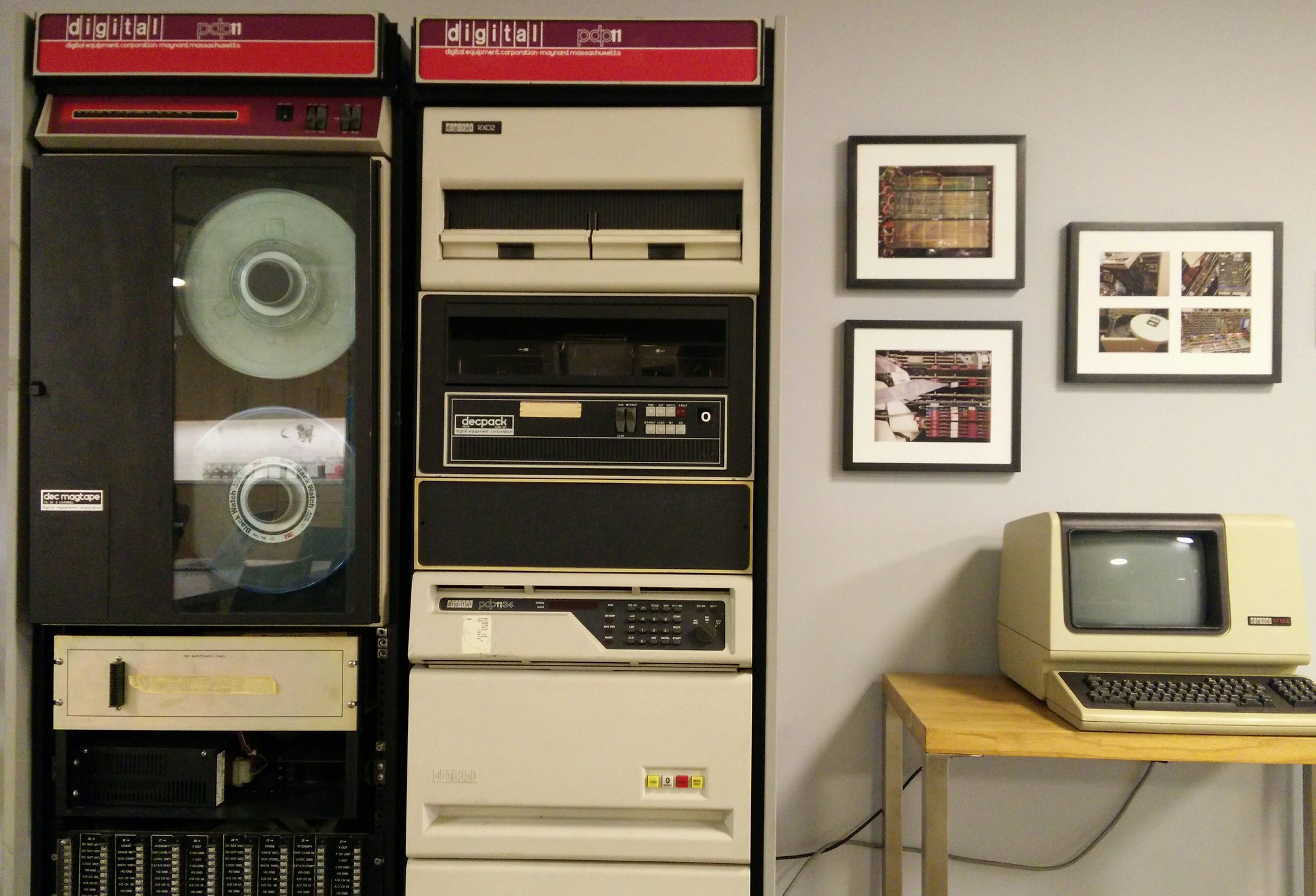What storage format is reasonably likely to be long lasting?
When I was younger, we were told that optical media would last 50 years or more. (That may be true for stamped optical media, but) it was a lie for burned optical media.
Your CD-Rs and DVD-Rs are probably already failing! Go archive them.
Magnetic tape fails. Spinning disks suffer head crashes.
What's the lifespan of a piece of flash media that is written to once?
Is paper really the only archival format?
(I say this as someone who uses floppy disks more than once a month, who has a library of audio cassettes and VHS tapes.
Well made magnetic tape fails fairly slowly, if it's stored well, but it still fails.
Shellac and Vinyl records have, thus far, proven to be our most stable music archival format.
What's the equivalent for data?)
All the professional archives that I'm aware of use some variant of a personal cloud storage system with redundant backups and constant human maintenance.
Most folks in this thread are suggesting something called M-Disc.
I guess I can try some M-Discs and see if they're still readable in four decades, but anything significant also needs redundant backups and human maintenance.
I can't find m-disc DVDs for sale.
I can find m-disc blu-ray discs for sale.
For archival, blu-ray is obviously preferable. For redundancy and cost, as well as maximal reader compatibility, I'd like the DVD option as well.
Either way, these discs are exponsive. Multiple dollars each, sometimes as high as $10/disc. (Granted, that's for 100 GB discs, so it's only $1/10 GB.)
The 25 GB discs seems to hover in the $3-5/disc ballpark. (Or roughly $1/5 - 8GB)
Yesterday I asked "Which storage format is reasonably long lived" and I got a lot of "clay tablet" answers.
I went to bed.
I woke up this morning with even more "Clay Tablet" answers, and a few folks being extra condescending and smug.
So let me revisit this thread some more, so that we can figure out if there's something to be gained here.
@68km @ajroach42 not sure about SD cards, but it is a definite concern with enterprise SSD workloads. JEDEC only requires 13-week retention (52 for client class devices) without power: https://www.jedec.org/sites/default/files/Alvin_Cox%20%5bCompatibility%20Mode%5d_0.pdf
@th @68km @ajroach42 am I understanding this right? if you power off the device at 25C, then store it in 55C, the data is supposed to last 400 weeks?!
is a take-away of this info that you shouldn't pull a flash drive or sd card right after a heavy write if you want the data to persist longer?
@th @68km @ajroach42 erm i think i had my axes mixed up
@ada @68km @ajroach42 yeah, it is thje other way around: "Active Temp" is the temp that it was run at for its lifetime, "Power off temp" is the storage. So Running at 55C but storing at 25C gives you at least 400 weeks of error-free powered-off data retention.
@ada @68km @ajroach42 although it is counter-intuitive to me that *writing* at a higher temperature gives longer data retention. That seems backwards.
@th @68km @ajroach42 maybe higher retention but lower rewrite endurance at higher temps? just speculating
@th @ada @68km @ajroach42 writing at 25C and storing at 55C means my data is gone in a week?!
@sneak @th @68km @ajroach42 always write in the hot aisle and store in the freezer for optimal data persistence? ![]()

@th @68km @ajroach42 Oh that's weird; I guess it's sane that they worry more about client devices being off for longer and in a drawer; but... the drives don't do scrubs when you power them on do they? If you leave a drive in drawer for 12 weeks and power it up, what happens?